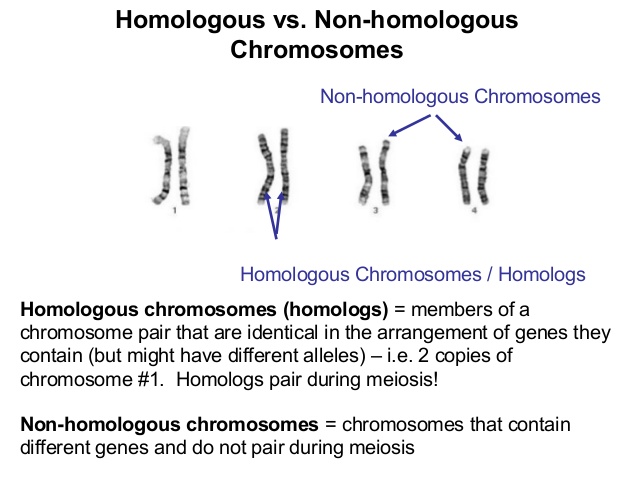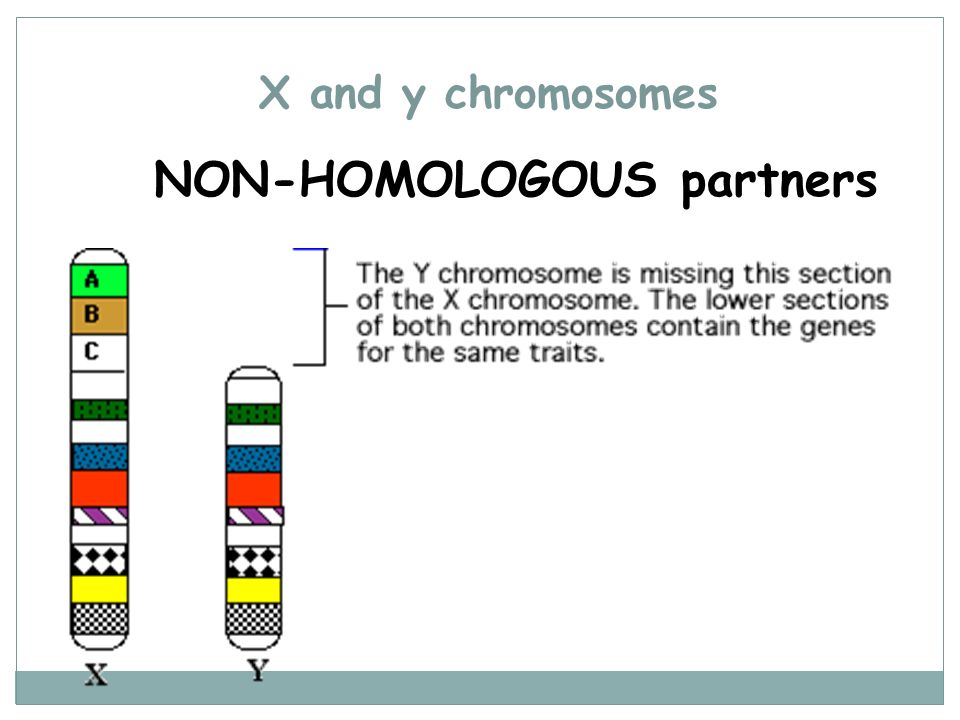Question #617f3
1 Answer
Homologous chromosomes don't have to be identical because -- even though they have the same genes -- they can have different alleles of those same genes.
Explanation:
Homologous chromosomes are the same as each other.
They have all the same genes in all the same places along their lengths.
But they often have different versions of these genes.
These different versions are called "alleles."
So homologous chromosomes are the same as far as having the same genes in the same places. In that way they are identical.
But homologous chromosomes can often have different alleles of those genes, so in that way they are different.
~ ~ ~ ~ ~ ~ ~
Here's a video of homologous chromosomes with two different alleles for the same trait (eye color).
~ ~ ~ ~ ~ ~ ~ ~
For comparison, here is an image of non-homologous chromosomes

https://www.slideshare.net/vanessawhitehawk/genetics-chapter-3-part-1
~ ~ ~ ~ ~ ~ ~ ~
- Homologous chromosomes are pairs.
- One is inherited from the mother and the other from the father.
- They are the same size and shape.
- The centromeres are in the same place.
- The string of genes matches along the lengths of both chromosomes.
- When dye is added, they stain in the same way.
- They pair up during cell division.
But even though the genes are the same because they control the same trait, they may differ in what they tell that trait to do.
That is, the alleles of the gene might be different.
~ ~ ~ ~ ~ ~ ~ ~
The X and Y chromosomes are a well-known non-homologous pair.


